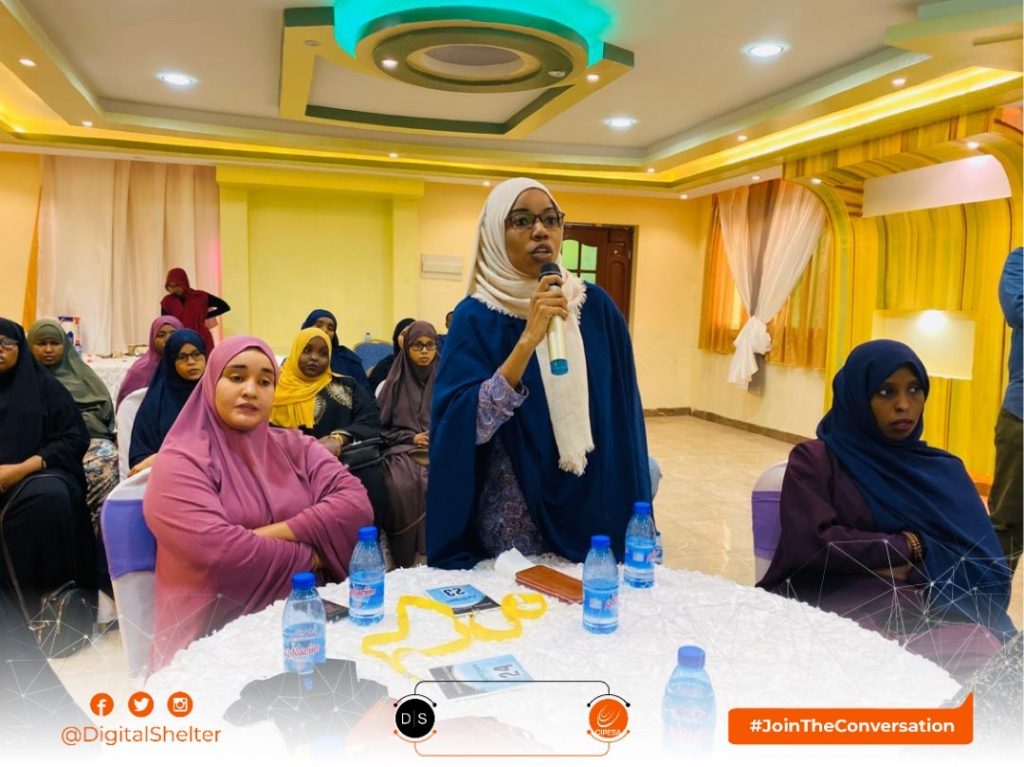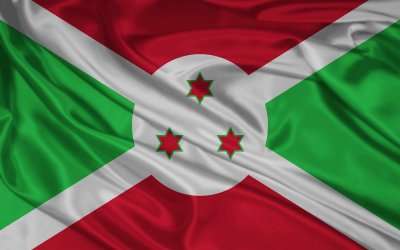Par CIPESA |
Une année après son arrivée au pouvoir, Evariste Ndayishimiye présente un bilan mitigé concernant la liberté de la presse au Burundi. Ayant connu de sévères restrictions sous le règne du prédécesseur de Ndayishimiye, le défunt Pierre Nkurunziza, les professionnels des media et les activistes avaient de l’espoir qu’après sa prestation de serment, Ndayishimiye initierait des réformes positives dans le pays.
Depuis son entrée en fonction le 18 Juin 2020, Ndayishimiye a activement travaillé avec les media, ce qui conduit à la levée de certaines sanctions. Comme actions notables, soulignons la grâce présidentielle accordée à des journalistes emprisonnés, la levée de certaines sanctions contre des media en ligne à l’instar d’Iwacu et Ikiriho, et contre les radiodiffuseurs dont la BBC et Radio Sans Frontières Bonesha FM (RSF Bonesha). Il ne s’agit cependant que de réformes partielles car bien d’autres media indépendants restent sous sanction, sans oublier que la culture de l’auto censure et le harcèlement de la société civile sont toujours notables.
Bref historique de la Répression
En Mai 2015, la candidature de Nkurunziza pour un nouveau mandat à la présidence de la République a déclenché une contestation, par laquelle les partis politiques d’opposition et des organisations de la société civile protestaient contre ce qu’ils considéraient comme un troisième mandat inconstitutionnel à la tête de l’Etat. Il s’en est suivi des manifestations publiques qui ont conduit à une crise politique sanglante, plusieurs rapports faisant état de brutalités policières, de destructions physiques de stations de radio et de télévision, et d’arrestation de plusieurs journalistes. Ces évènements ont été précédés d’un ordre du gouvernement aux fournisseurs d’accès à internet (FAI) de bloquer l’accès aux plateformes de media sociaux tel que Facebook, WhatsApp, Twitter et Viber.
Nkurunziza a poursuivi le processus électoral et remporté le scrutin de 2015, succès qui l’a conduit à verrouiller systématiquement l’espace public. La période qui a précédé son décès en Juin 2020, fut caractérisée par une augmentation de la répression contre des médias en ligne et hors ligne, et un harcèlement des journalistes, forçant beaucoup d’entre eux à fuir en exil.
En Juillet 2016, Jean Bigirimana, journaliste indépendant est porté disparu dans des circonstances non encore éclaircies jusqu’à présent. Des témoins anonymes affirment que Bigirimana fut enlevé par des officiels du service secret burundais. Bien que les autorités du Burundi nient toute implication dans l’enlèvement de Bigirimana, des rapports ont fait état de menaces de mort adressées ultérieurement à sa famille forçant sa femme et ses enfants à fuir en exil.
En Octobre 2017, l’accès à des sites web appartenant à des médias locaux http://www.iwacu-burundi.org, http://www.isanganiro.org, et http://www.ikiriho.org depuis le Burundi était bloqué, sauf à travers des techniques de contournement (http://www.isanganiro.org fut débloqué peu après, les deux autres demeurent bloqués en Juin 2021). La station de radio Isanganiro et l’hebdomadaire Iwacu sont restés respectivement opérationnels et en circulation. L’équipe du journal en ligne IWACU a contacté le Conseil National de la Communication (CNC) ainsi que l’Agence de Régulation et de Contrôle des Télécommunications ( ARCT), mais tous ont nié toute responsabilité, arguant que le problème serait dû à une panne technique à chercher chez le fournisseur du service internet. Afin de maintenir l’accès à ses publications en ligne, IWACU a dû mettre en place un site web alternatif ( https://iwacu.global.ssl.fastly.net/ ). Entretemps, la lettre de demande de déblocage du site web adressée par Ikiriho au CNC est restée sans réponse.
En mai 2018, le CNC a adressé des mises en garde respectivement à la Radio Isanganiro, à la Radio CCIB FM+ et à la Radio France Internationale, et a suspendu les licences de la BBC et de la Radio Voie d’Amérique (VOA) pour une période de six mois, les accusant de diffuser des informations non rigoureusement vérifiées ou des informations tendancieuses. Quelques mois plus tard, le gouvernement suspendait les activités d’Organisations Non Gouvernementales internationales, les accusant de violer le cadre général de coopération entre la République du Burundi et les organisations non gouvernementales étrangères de 2017, qui leur exige un recrutement de leur personnel en suivant des quotas ethniques.
Du point de vue législatif, Nkurunziza a décrété un nouveau code de procédure pénale le 11 May 2018, qui comprend notamment des dispositions sur l’interception de communications électroniques. Ces dernières octroient à des agences gouvernementales les pleins droits pour la saisie de communications électroniques et de données informatiques dans la conduite d’enquêtes. Ledit code fut décrété deux semaines seulement après avoir été présenté au conseil des ministres en violation de la constitution selon certains observateurs.
Entretemps, un blocage de YouTube fut signalé au Burundi par Open Observatory of Network Interference durant le mois de Décembre 2019 sans aucune explication officielle. Avant la coupure de YouTube, le Gouvernement avait suspendu les commentaires de la chaine YouTube de l’agence de presse en ligne Nawe, et interdit toute nouvelle publication sur ladite chaîne. Au départ, le site web de Nawe et son compte twitter restèrent actifs mais n’ont plus publié depuis Aout 2020. De plus, Nawe ne figure plus sur la liste des médias en ligne disposant d’une licence d’opération au Burundi.
Le début de la pandémie de Covid-19 a présenté des défis encore plus importants. En mai 2020, le Burundi a expulsé des fonctionnaires de l’Organisation Mondiale de la Santé pour avoir contesté la stratégie nationale de riposte la pandémie de Covid-19, dans un contexte de tensions pré-électorales. Alors que le pays a communiqué certaines statistiques sur la pandémie de Covid-19, le gouvernement ont été accusé de cacher les vraies données en les minimisant et de museler la société civile et les travailleurs de la santé.
Une nouvelle aube
Sous la direction du nouveau chef d’Etat Ndayishimiye, qui venait de remporter les élections avec un score de 67%, la répression s’est quelque peu atténuée. Quatre journalistes du magazine Iwacu ont été libérés de prison en Décembre 2020 par une grâce présidentielle après avoir purgé 14 mois d’une peine qui devait durer deux ans et demi pour « tentative de complicité d’atteinte à la sûreté de l’État ». Les accusations étaient relatives à la couverture de combats entre l’Armée du Burundi et une milice armée venue de la République Démocratique du Congo voisine. Avant leur libération, plusieurs organisations, dont le Comité pour la Protection de Journalistes (CPJ), avaient écrit une pétition pour démontrer que les journalistes avaient été emprisonnés injustement.
Comme autre évolution positive, le Président Ndayishimiye a tenu une session de dialogue avec les journalistes burundais en Janvier 2021, durant laquelle il a affirmé que les media sont un pilier solide pour la démocratie et le développement. Il a encouragé le régulateur des Médias (CNC) à engager rapidement un dialogue avec les organismes de presse sous sanctions afin d’explorer la voie vers leur réouverture.
Suite à cette directive du Président, le CNC invita Léandre Sikuyavuga, Rédacteur en chef chez Iwacu à une réunion le 11 Février 2021. Sikuyavuga a été informé que le CNC était en pourparlers avec les services techniques habiletés pour rétablir l’accès au site web d’Iwacu depuis le Burundi. De plus, le forum de discussion sur le site web, fermé depuis Avril 2018 a également été rouvert. Cependant, l’accès au site web d’Iwacu depuis le Burundi n’est toujours pas effectif au moment cet article est écrit.
Par ailleurs, le Président du CNC a tenu une conférence de presse en Février 2021 pour annoncer la levée de toutes les sanctions prises à l’encontre de la RSF Bonesha FM. Le radiodiffuseur est l’une des stations indépendantes détruites en 2015, et sa licence d’exploitation avait été révoquée pour une durée indéterminée en 2017. La station a repris ses émissions quatre jours après la conférence de presse. Exprimant sa joie après la levée de sanctions, Léon Masengo, Directeur de Bonesha FM a expliqué que plusieurs équipements avaient été détruits en 2015, mais que la station commencerait à émettre dans la capitale économique Bujumbura d’abord, puis couvrirait tout le pays lorsque les équipements seraient remplacés. Il a déclaré que le coût total de rénovation serait estimé à 60.000 Dollars US.
Plus récemment, le CNC a levé les sanctions contre Ikiriho et contre la BBC. Pour reprendre ses activités, il a été demandé à la BBC de refaire une demande pour l’obtention d’une nouvelle licence. De son côté, Ikiriho a immédiatement repris ses activités notamment ses publications sur son compte Twitter qui était resté inactif depuis Octobre 2018. Son site web demeure cependant inaccessible.
Néanmoins, plusieurs autres radio dont la VOA, la Radio Publique Africaine (RPA) et la Radiotélévision Renaissance restent bannies. Pour contourner l’interdiction nationale, la RPA et la Radiotélévision Renaissance, dont les journalistes sont actuellement en exil continuent à préparer et à diffuser activement les éditions quotidiennes sur leurs chaines YouTube (Radio Publique Africaine Ijwi ry’Abanyagihugu et Radio Télé Renaissance). Ces éditions quotidiennes sont très partagées par des citoyens Burundais via WhatsApp.
De surcroit, plus de 70 journalistes burundais qui ont fui la crise de 2015 vivent toujours en exil selon le journal Le Monde. De plus, l’auto censure et la répression de la société civile persistent.
Les quatre prochaines années
Afin de ramener l’espace médiatique et civique burundais au dynamisme d’avant 2015, Ndayishimiye doit s’engager à défendre la liberté des médias et de l’internet en levant sans condition les interdictions imposées à tous les organes de presse, notamment en amnistiant tous les journalistes qui vivent actuellement en exil. Les réformes des pratiques doivent s’accompagner de réformes en matière de politiques, notamment par la modification des lois qui accordent des pouvoirs abusifs aux autorités leur permettant de mener des activités de surveillance et de censure injustifiées. Ndayishimye devrait également rompre avec l’habitude de coupure d’accès à l’Internet et aux médias sociaux.











 Highlighting the issue of online violence against women was Sucdi Dahir Diriye, a passionate community volunteer and member of
Highlighting the issue of online violence against women was Sucdi Dahir Diriye, a passionate community volunteer and member of  Based on their personal and professional experiences, the panelists stressed the need for counter measures against the prevailing threats. Among the recommendations made was increased digital security skills and knowledge building among activists, bloggers and media professionals. Specialized training on gendered online harassment was encouraged. Panelists also emphasized a dual approach in voice amplification – online and offline to reach wider audiences. Furthermore, more stakeholder dialogue to raise awareness on online civic space and digital rights, including data protection and privacy inline with Somalia’s growing technology sector. Other recommendations included research undertakings on current digital threats in Somalia, to inform advocacy and policy interventions; and establishment of a solidarity network to support victims of online attacks.
Based on their personal and professional experiences, the panelists stressed the need for counter measures against the prevailing threats. Among the recommendations made was increased digital security skills and knowledge building among activists, bloggers and media professionals. Specialized training on gendered online harassment was encouraged. Panelists also emphasized a dual approach in voice amplification – online and offline to reach wider audiences. Furthermore, more stakeholder dialogue to raise awareness on online civic space and digital rights, including data protection and privacy inline with Somalia’s growing technology sector. Other recommendations included research undertakings on current digital threats in Somalia, to inform advocacy and policy interventions; and establishment of a solidarity network to support victims of online attacks.

